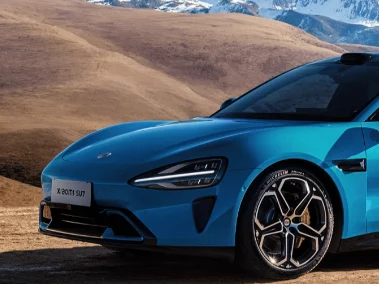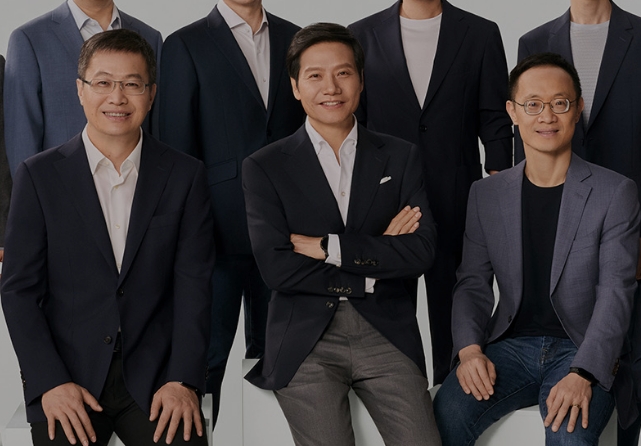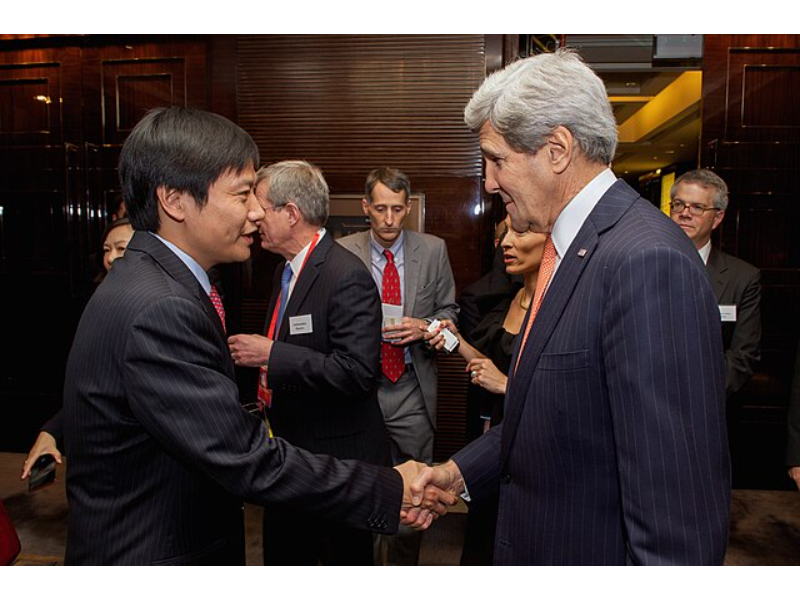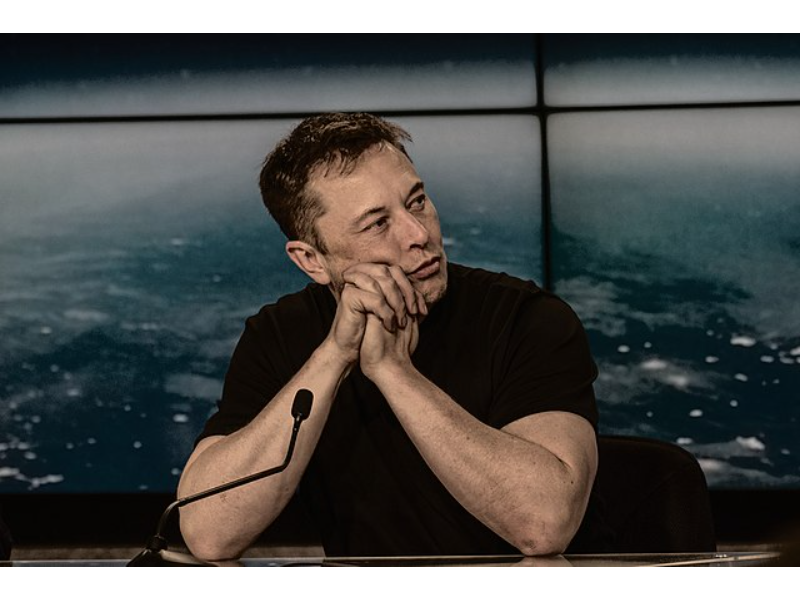- Chinese netizens are very fond of teasing Lei Jun, the founder of Chinese tech giant Xiaomi. When he shared that he usually eats soybean milk and deep-fried dough sticks in the morning, some netizens commented,” Mr.Lei, we usually eat big cakes in the morning, eat ‘hardships’ in the moon, eat ‘losses’ at night” – implying they fall for the boss’s empty promises or suffer life’s frustrations like Squidward, the hapless in character in SpongeBob Squarepants.
- The significant disparity in brand tonality between Xiaomi and Elon Musk’s products is striking.
OUR TAKE
My preference for Lei Jun over Elon Musk reveals a fascinating divergence in consumer attitudes shaped by cultural and economic factors. Lei‘s approachable demeanour, relatability, and focus on delivering high-quality, affordable products have earned him widespread admiration. Lei’s engagement with consumers through social media, sharing personal insights and maintaining a down-to-earth presence, creates a strong sense of connection and trust. Elon Musk embodies a more visionary and enigmatic persona. For many, especially in a market like China, the practical benefits and relatable leadership style of Lei Jun outweigh the allure of Musk’s futuristic ambitions, resulting in a stronger preference for the Xiaomi founder.
–-Miurio, BTW reporter
Elon Musk, and now maybe Jensen Huang, may be two of the most admired names in tech, but there’s a Chinese equivalent whose admiration could be even greater, among the Chinese, at any rate.
Lei Jun, the creator of Xiaomi and a tech celebrity in China, recently unveiled Xiaomi’s first-generation electronic vehicle, the Xiaomi SU7. As the king of publicity in China, Lei frequently updates his daily routine on TikTok, Weibo, and other social media platforms to promote the Xiaomi SU7.
This personal touch, similar to Musk’s but with a friendly and far more approachable tone, sets him apart and has won him a legion of loving fans – myself included.
Chinese netizens have commented on his social media accounts, praising him as a cool and distinguished man. Despite 10 years in the spotlight, Lei maintains a gentlemanly demeanour, and his thick hair defies the stereotype of balding IT professionals.
As a former top scorer in China’s highly competitive college entrance examination, Lei is seen as a self-made wealthy professional with a remarkable destiny. It seems everyone loves him, even more so than Elon Musk.
Imagine this: you are a young person just stepping into the real world. You gaze at the new Tesla model, its sleek body shimmering under the lights, reminiscent of the private rocket Elon recently launched into space. The self-driving feature is super cool, right? The long range is impressive, right?
But, you could get a fully-loaded Xiaomi SU7 electric car for half the price of a Tesla. With a Porsche-like body design, a range that allows you to drive from Beijing to Shanghai on a single charge, and even sun protection! This feature alone appeals to countless women.
Which one would you choose? If it were me, there’s no doubt.

Great different personalities in life
Lei Jun, the man who’s been on the Internet for years
Chinese netizens are very fond of teasing Lei. When he shared that he usually eats soybean milk and deep-fried dough sticks in the morning, some netizens commented below, “Mr. Lei, we usually eat big cakes in the morning, eat ‘hardships’ in the moon, eat ‘losses’ at night”, which implied they fall for the boss’s empty promises or suffer life’s frustrations like Squidward. In SpongeBob SquarePants, Squidward is a world-weary octopus with an inner colleague and a money-hungry boss. He has recently become popular in China, as more and more young people grow up and realize that they no longer see the world as a beautiful garden. After entering society and understanding Squidward’s irritability and apathy in social relations, they see it as a closed loop of education.
Chinese netizens gained lei’s attention through amusing comments, but it was more like a joke between friends than an ordinary person mocking a billionaire businessman.
“Xiaomi continues to evolve while its performance continues to grow. Now it is transforming its business model from challenger to leader with a series of new initiatives.”
On my favorite website Bilibili, a popular video platform in China, the top-ranking funny music video features Lei’s slip of the tongue at a Xiaomi phone launch event in India. This mistake turned into an unofficial slogan for Xiaomi, “Are You OK?” The phrase gained public attention through various derivative works, evolving into a popular catchphrase and cultural phenomenon.
Lei is very popular and be held in great affection, deeply investigate the reason, I think it has something to do with it that he is an easy-going, tolerant, modest businessman. For Chinese people, Lei perfectly embodies the ideal personality that Chinese people have pursued for over two thousand years. It is only when the natural qualities and the results of education are properly blended, that we have the truly wise and good man. Knowledgeable, cultured, morally upright, affable, tolerant, and humble as Lei, he perfect fit with a graphical representation.
I believe that such a businessman can build a better life for the people. Those who do not support him only see that his wealth is not as great as some other businesspeople, but this view is actually very superficial, shallow, ignorant, should not be accepted.

Weird tech genius
In the contrast, I’ve seen an interview about Elon Musk, he said he only have a cup of coffee every morning, or just eat nothing, breakfast takes up less than five minutes of his life.
I mean that’s a bit of an exaggeration. I wonder if he’s using a figure of speech.
There’s no need to introduce Elon Musk. He’s a lot of things. This ambitious man saved Tesla and developed his own rocket in just a few years.
Successful like Musk, rampage is him, imperious radical is also him, people who have spent time with him say that his personality is eccentric, difficult to approach.
When he first took over Twitter, he made his Twitter staff follow strict rules. I think a good corporate culture based on good relationships with subordinates is one of the most important factors in the longevity of a company, and Musk seems to be very bad at it. When I put myself in the perspective of a Twitter employee, I think Musk is just plain bad, a cold-blooded businessman who is always ripping people off, a bullshit plan to explore the universe, firing me for no reason, a rigid set of rules he has to follow, and he can stay out of it because he’s the one who made them.
In the midst of the COVID-19 pandemic, he has added to fears about the safety of vaccines by making comments that downplay the crisis, and he opposes mandatory vaccinations, which is ridiculous, right? He has no concern for human suffering. He is also known for his tough attitude towards employees. Former colleagues see Musk as petty, cruel and petulant, especially when frustrated or challenged. A few years ago. he was derided as a bankrupt lunatic.
He often set himself up, claiming to be an independent-minded political party, but in fact he was isolated from the tangled interests of various parties, and he was close to one side only because it was more beneficial to him. Independence of thought was only his pretext for disguising selfishness; Just as he masquerades as a peacemaker; Musk’s attempt to intervene in the war between Russia and Ukraine as an international peacemaker, apparently, this thing came after he spoke with Putin, though Musk vehemently denied the conversation ever took place.
Every time he sets it up, it falls apart.
I have read his autobiography, his growing up experience can be described as difficult, parents divorced, abused by his father, bullied at school, no friends, bereaved child, broken down several marriages… He has publicly said he has Asperger’s syndrome. Some had a worse upbringing than him, some didn’t have enough to eat, some were still at war; This is not an excuse for his eccentric and arrogant personality.
If you were me, wouldn’t you prefer the guy who was happily married for ten years with his first love like Lei or the guy who lacks empathy, has three broken marriages, multiple artificially inseminated kids like Musk?
Pop quiz
Which of the following individuals is currently the richest person in the world as of 2024?
A. Jeff Bezos
B. Elon Musk
C. Bernard Arnault
D. Bill Gates
The correct answer is at the bottom of the article.
Also read: Xiaomi’s SU7 buyers face up to 7-month wait
Also read: China’s Xiaomi joins the EV race with ‘dream car’ to take on Tesla
The huge gap in brand tonality
From beginning to end to benefit people’s daily life
The significant disparity in brand tonality between Xiaomi and Elon Musk’s products is striking.
Inspired by its creator, Xiaomi is celebrated for its affordability, innovation, and mass-market appeal across smartphones, smart home devices, and lifestyle gadgets. The company adopts a friendly and approachable marketing tone that highlights value for money and accessibility. Xiaomi effectively interacts with consumers via social media and online platforms, employing humor and relatable content to resonate with a younger audience. Its brand identity is characterised by a light-hearted and engaging tone, prioritising user experience and community engagement.

Ten years ago, Apple unveils iphone6 series, with prices ranging from 5,000 to 8,000 yuan (826 to 1100 dollars), Xiaomi released the Mi Phone Generation, which is only one-fifth of Apple’s price. At that time, the global mobile phone market, Nokia, Samsung, Apple occupy the absolute leadership position, you could purchase a phone with above-average performance for less than half the price of an Apple product, so as now. Also, you can acquire smart home devices at a discount compared to other brands. Despite current challenges in China’s electric car industry, the Xiaomi SU7 remains a cost-effective product designed to integrate seamlessly into people’s lives.
The sector out of reach
In contrast, Elon Musk’s products often convey a blend of technical expertise and visionary goals, frequently addressing complex topics such as artificial intelligence, sustainable energy solutions, and space colonisation.
The areas he is pushing are too out of reach, at least for me; The tone is serious and forward-thinking, appealing primarily to investors, scientists, and engineers. He’s looking for a passport to our planet and the universe. But this is actually not enough to connect with ordinary people.
“Anyone here hates space travel, anyone, all right, you are fired.”
Elon Musk’ words when firing people causally
Tesla and SpaceX consistently emphasise cutting-edge technology, innovation in sustainable energy, and advancements in space exploration. Tesla’s brand tonality leans towards a futuristic vision, focusing on premium electric vehicles, while SpaceX embodies a pioneering spirit and ambitious goals for space travel.
The preference for Lei Jun over Elon Musk reveals a fascinating divergence in consumer attitudes shaped by cultural and economic factors. Lei Jun, the founder of Xiaomi, has cultivated an image that resonates deeply with the mass market in China. His approachable demeanor, relatability, and focus on delivering high-quality, affordable products have earned him widespread admiration. Lei’s engagement with consumers through social media, sharing personal insights and maintaining a down-to-earth presence, creates a strong sense of connection and trust.

In contrast, Elon Musk embodies a more visionary and enigmatic persona. While his innovations with Tesla and SpaceX are undeniably groundbreaking, Musk often projects an image of high ambition and risk-taking that can seem distant and less relatable to the everyday consumer. His focus on premium, cutting-edge technology positions his brands in a different league, appealing more to tech enthusiasts and investors than to the broader consumer base.
While his innovations with Tesla and SpaceX are undeniably groundbreaking, Musk often projects an image of high ambition and risk-taking that can seem distant and less relatable to the everyday consumer.
Well, I think the economic basis determines the structure of society, and these too macro space exploration and space tourism are often beyond the reach of people who face basic challenges such as food security, but they are close to the people. Pushing forward the development of cutting-edge technology is not an easy thing, many people in the world just want to live in peace, you can not be as aggressive as Elon to force others.
Based on that, will you prefer to buy a new smart product at a good price, or buy a Tesla to support Elon Musk’s space exploration program?
The correct answer is B, as of 2024, Elon Musk is the richest person in the world. With a net worth of approximately $215.6 billion.
